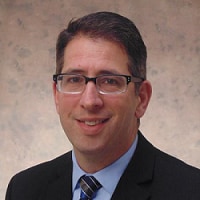The use of hydrogen gas as a source for power generation, commercial and industrial heating, and propulsion is growing rapidly. Containment and delivery of gaseous hydrogen for these applications can be very challenging. Gaseous hydrogen can readily diffuse into and through metals and polymers causing degradation. This seminar will discuss the effect of hydrogen on different materials starting with an explanation of the fundamentals of materials science, which will provide a better understanding of hydrogen embrittlement. Specific examples will be used to show how certain materials behave and which materials should be avoided in high-pressure hydrogen service applications. The qualification of materials for use in hydrogen, as it is described in a new standard, will be discussed.
What You’ll Learn
- Critical concepts covering the nature and behavior of materials including an atom-level view of
metals, as well as the microstructural characteristics and mechanical properties of materials - The principles of materials science, corrosion and other factors affecting
material properties especially for service in hydrogen gas - Different types of corrosion and how specific engineering alloys such as stainless steels, brass,
and aluminum alloys resist degradation in various environments including hydrogen - How to select optimal materials of construction for demanding applications based on
pressure and temperature ratings, corrosive threats and compliance - Materials qualifications and standards for the United States
- Swagelok products for hydrogen services
About the Speaker: Dr. Robert Bianco, Senior Materials Scientist
Bob Bianco joined Swagelok in May of 2017 as a materials expert and technical lead for Swagelok's Additive Manufacturing Program.
He has worked for nearly 30 years in an applied R&D organization trying to find opportunities for providing value-added solutions to customers such as developing materials for unique applications and protecting materials from degradation in their environments.
Bob earned a B.S., M.S., and Ph.D. in Metallurgical Engineering from The Ohio State University.
His technical background and expertise includes advanced manufacturing such as 3D printing, development of high-temperature structural materials, materials characterization and performance testing, failure analyses/investigations, and surface modifications for improving corrosion resistance (electroplating and CVD/diffusion coatings). Bob has taught as an Adjunct Professor at the University of Connecticut Institute of Materials Science, Storrs, CT, on the environmental durability of aerospace materials.
Bob is a Fellow with the American Society of Materials International (ASMI) and is the Swagelok representative on special committees at ASME, SAE, and SME related to alloy development and the introduction of pressure-containing components fabricated by 3D printing.
Have Questions?
Our live chat provides support for all your fluid management solutions - from high-quality Swagelok Products, to application support and other services. Speak with a Swagelok Cambridge specialist right now!


